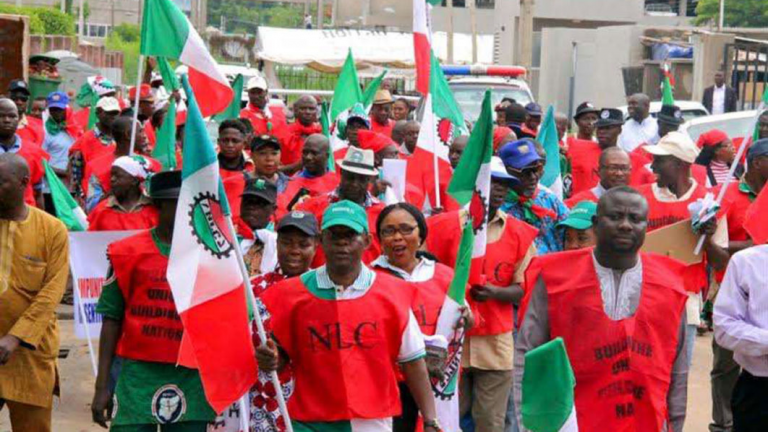
A kid might claim ignorance of the incessant ‘tours’ that had in recent times embarked upon by the Nigeria’s Government and the Labour as regards minimum wage but if a full-fledged adult displays such an attitude, he may be regarded as an imbecile.
From the onset, the teeming Nigerians have been watching with keen interest, though with soured physiognomies. In some quarters, many have opined that if care isn’t taken, the excruciating effects of the endless tours is liable to cripple the functionality of the system especially at a point the country is deeply concerned about the fast approaching general elections.
In spite of these concerns, the government is still creating further room for the organized Labour to embark on yet another industrial action in this year being 2022. It’s not anymore news that the Nigerian Labour Congress (NLC) is threatening to go on an indefinite strike over the impending hike in electricity tariff and petrol pump price.
Tekedia Mini-MBA edition 16 (Feb 10 – May 3, 2025) opens registrations; register today for early bird discounts.
Tekedia AI in Business Masterclass opens registrations here.
Join Tekedia Capital Syndicate and invest in Africa’s finest startups here.
It would be very pertinent to appraise some key fundamental facts with a view to presenting a fair and objective analysis herein. Mind you; the fairness as mentioned above has to do with all concerned, not a particular party.
In accordance with the stipulations of the International Labour Organization (ILO) whose principle governs the relationship between the government and labour in any nation across the globe, the national minimum wage is meant to be upwardly reviewed once every five years.
The current N30,000 Nigerian workers are entitled to as minimum wage was signed into law by the government in April 2019. Funnily enough, till date, the Federal Government (FG) led by President Muhammadu Buhari is yet to fully implement the new minimum wage let alone the various state governments.
Prior to signing the N30,000 into law by the President, the organized labour comprising mainly the NLC and the Trade Union Congress (TUC) came up with an agitation, reminding the government that onward increment of the workers’ minimum wage of the then N18,000 was long overdue.
In line with the demand, after rigorous consultations, the FG under the watch of President Buhari set up a 30-man tripartite committee consisting of the representatives of the governments, the private sector and the labour union, though the Local Government wasn’t reportedly represented.
The Ministry of Labour and Employment led by Dr. Chris Ngige informed Nigerians that the awaited new national minimum wage would be presented by the committee by the end of the third quarter of September 2018.
It’s noteworthy that prior to the setting up of the tripartite committee, the NLC was proposing N56,000 as new minimum wage. Amidst the committee’s deliberations, N30,000 was reportedly agreed by the sectors involved as was notified by the NLC headed by Comrade Ayuba Waba.
It’s worthy of note that the committee couldn’t come up with any tangible resolution, not until the workers embarked on a warning industrial action.
It’s noteworthy that despite having resolved for N30,000 the FG was afterwards proposing for N24,000 contrary to the figure the committee allegedly agreed upon, knowing full well that the apex government was part of the deliberations.
Despite the fact that the FG, let alone the state governments, is yet to fully implement the N30,000 minimum wage doggedly fought for by the Labour unions, so many increments have thus far been experienced by the workers and the entire citizenry.
The FG’s border closure has continued to worsen food prices; VAT increment from 5.0% to 7.5% which has hurt disposable income; the purported removal of petrol subsidy which has led to an increase in pump price by 12.4% to N165.0 and electricity tariffs hike by c61.3% from cN31.0/kwh to cN50.0/kwh; have all taken a huge toll on the citizenry.
Despite the arguable necessity of these reforms, inflation is currently at a 36-month high with an incredibly harsh impact on purchasing power in Nigeria. The economic hardship is obviously seriously telling on the ordinary citizens who make up the majority of the entire population.
The workers apparently deploy the strike mechanism whenever the ‘maltreatment’ becomes much unbearable or life-threatening. Could it be that the government has always mistaken their patience cum patriotism for cowardice or inferiority?
It could be recalled that the various state governments under the aegis of the Nigerian Governors’ Forum (NGF) offered N22,500 as the new minimum wage, stating the government workers constitute merely about 5% of their respective states’ population.
According to the governors, if the workers end up receiving up to N30,000, their funds would be impoverished, which based on their claim, would be to the detriment of the entire populace or the common man who make up the majority.
It were only states such as Edo, Benue and Bayelsa that then indicated interest to pay any amount, which we all knew was done for political reasons. It’s needless to assert that it was a mere political talk, because the states in question are reportedly yet to fully implement the new minimum wage.
It’s pathetically noteworthy that till date, most establishments in the private sector are yet to pay most of their employees up to N10,000 let alone the N30,000 stipulated by law and no one is talking about it.
A supplementary budget of the new N30,000 Minimum Wage was approved by the lawmakers in 2021 and was duly signed into law by the Presidency, yet virtually the entire federal workers are currently yet to receive their arrears of the new minimum wage. This implies that the government lacks the enthusiasm to take the needed action.
No patriotic Nigerian wants a strike action neither do they want any form of deceit, hence all concerned needn’t be reminded to earnestly do the needful to salvage the country from the ongoing quagmire.



